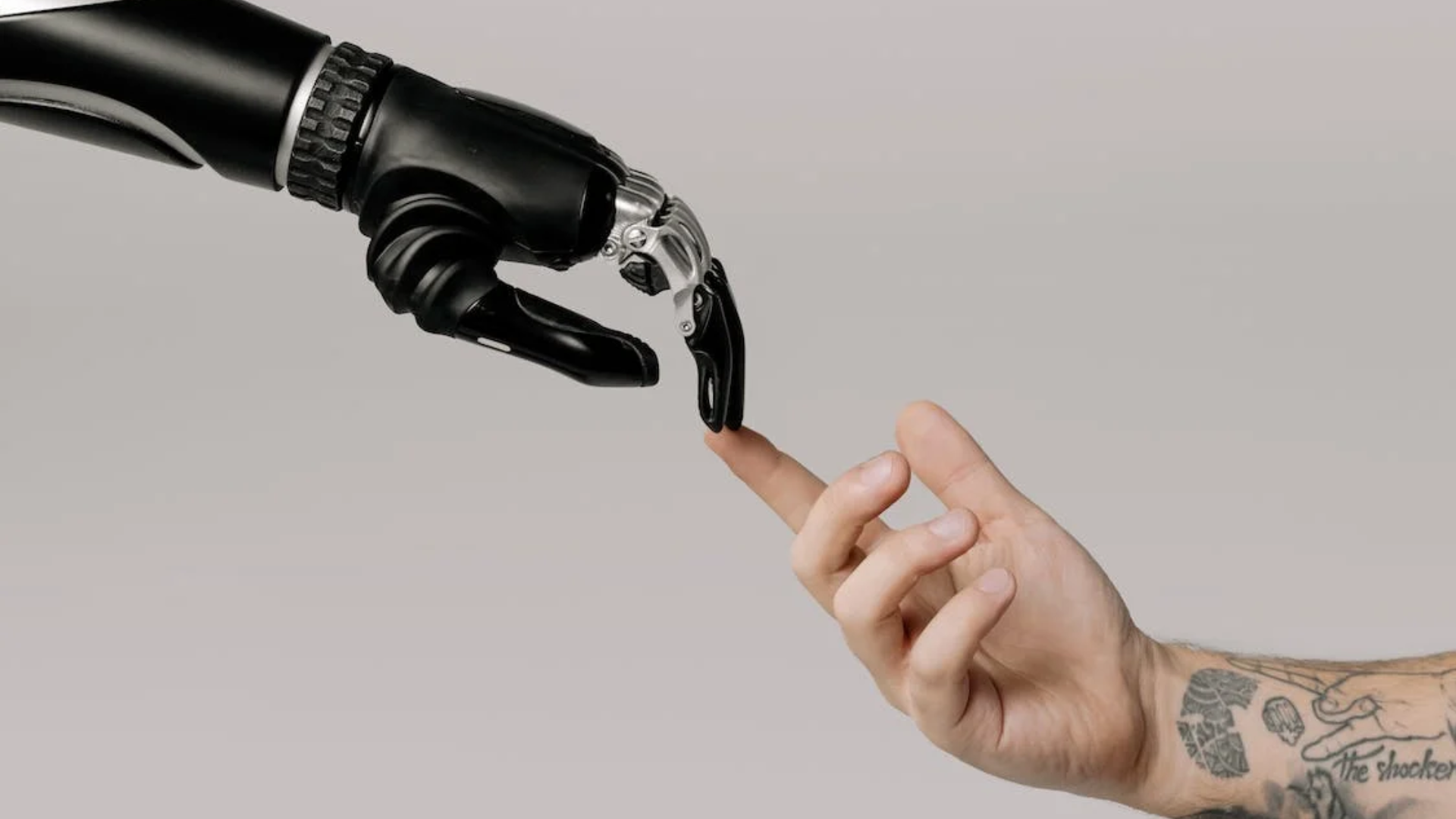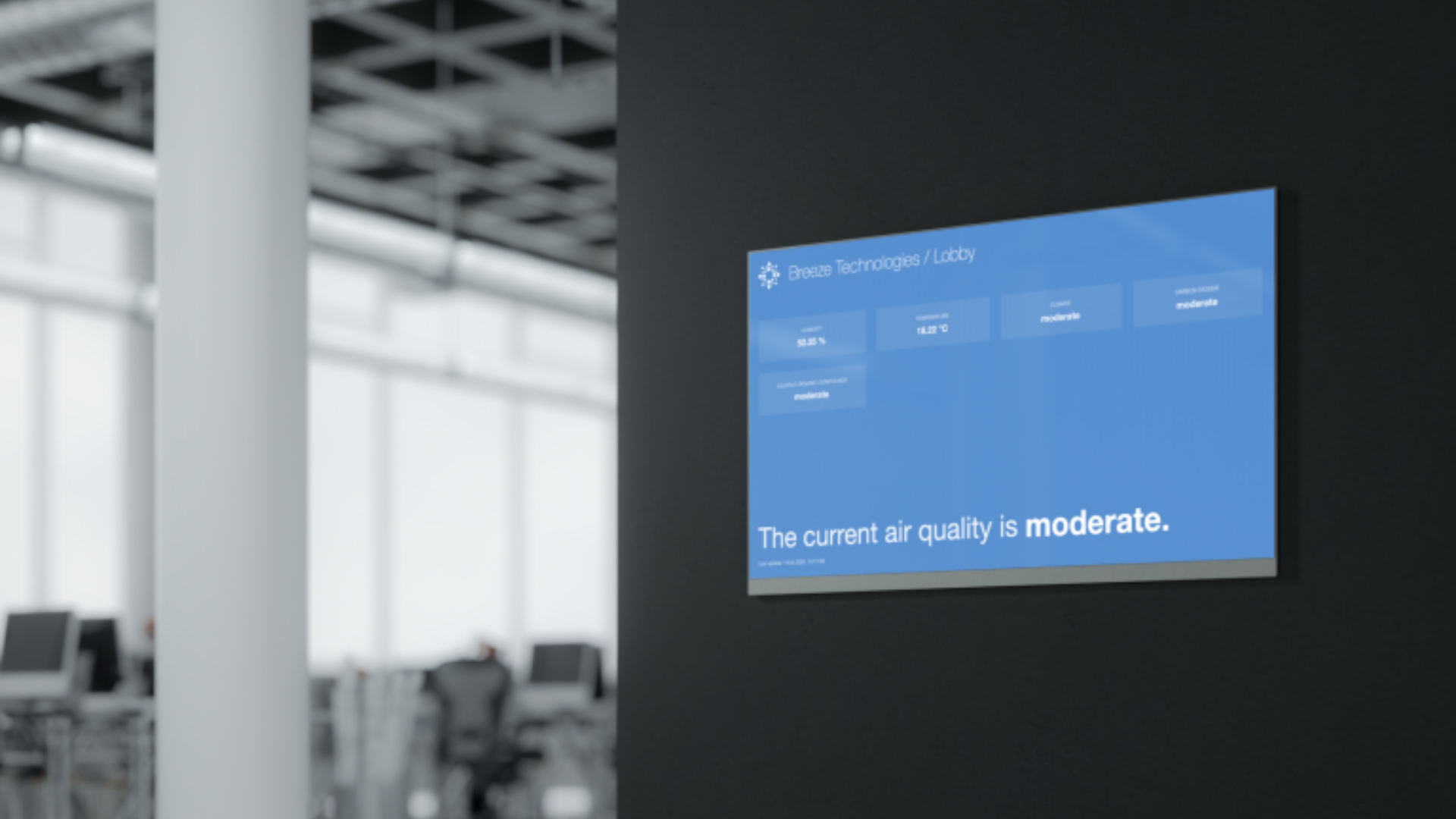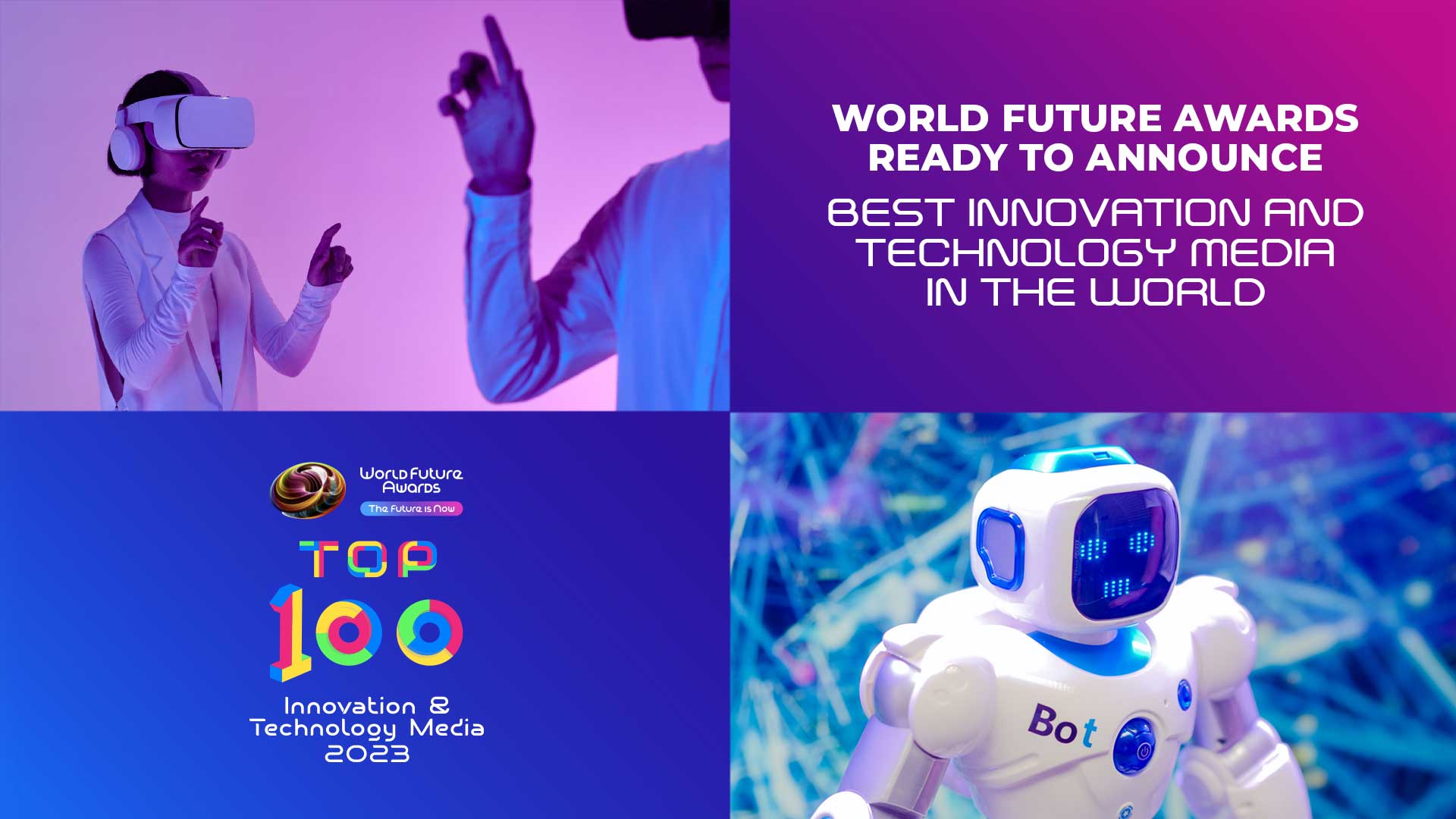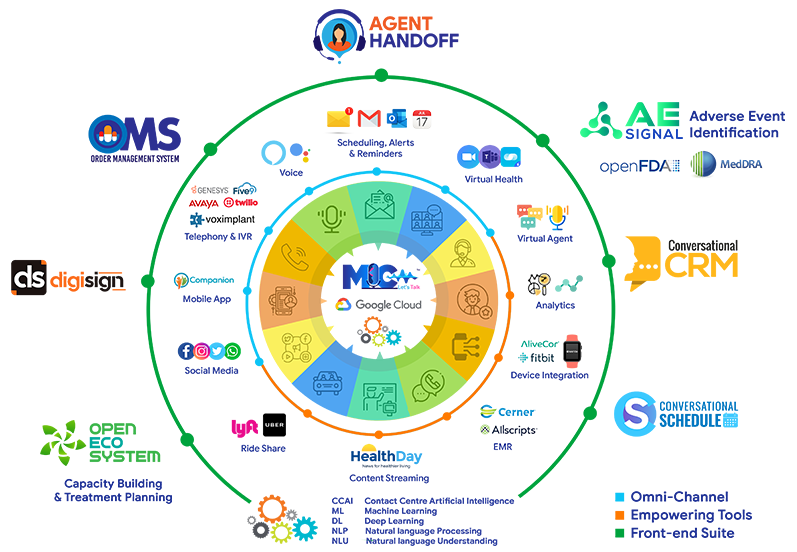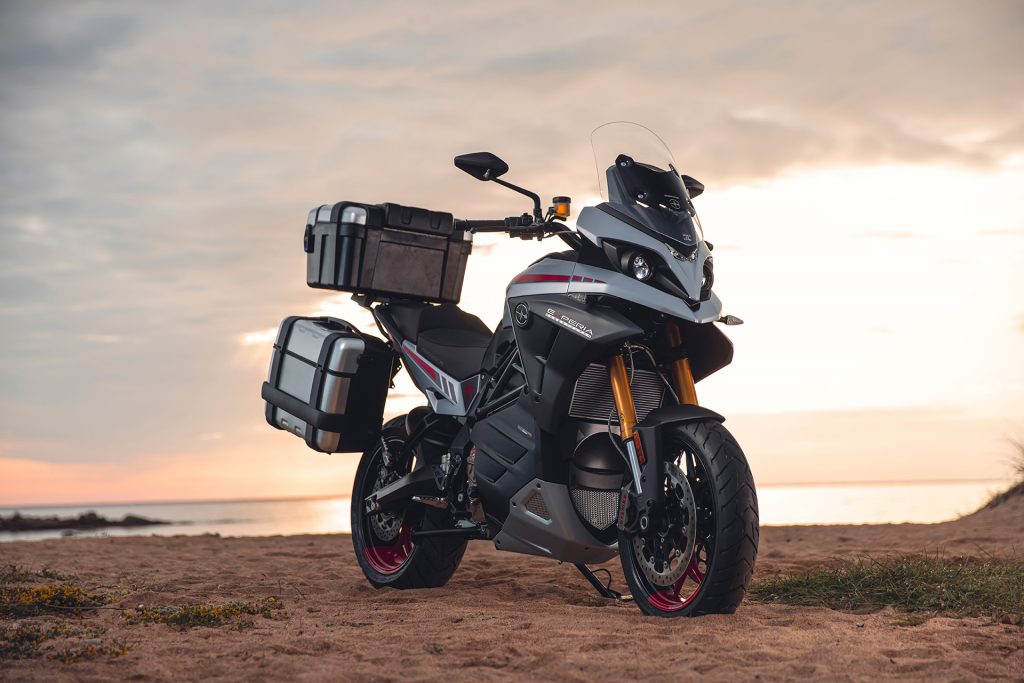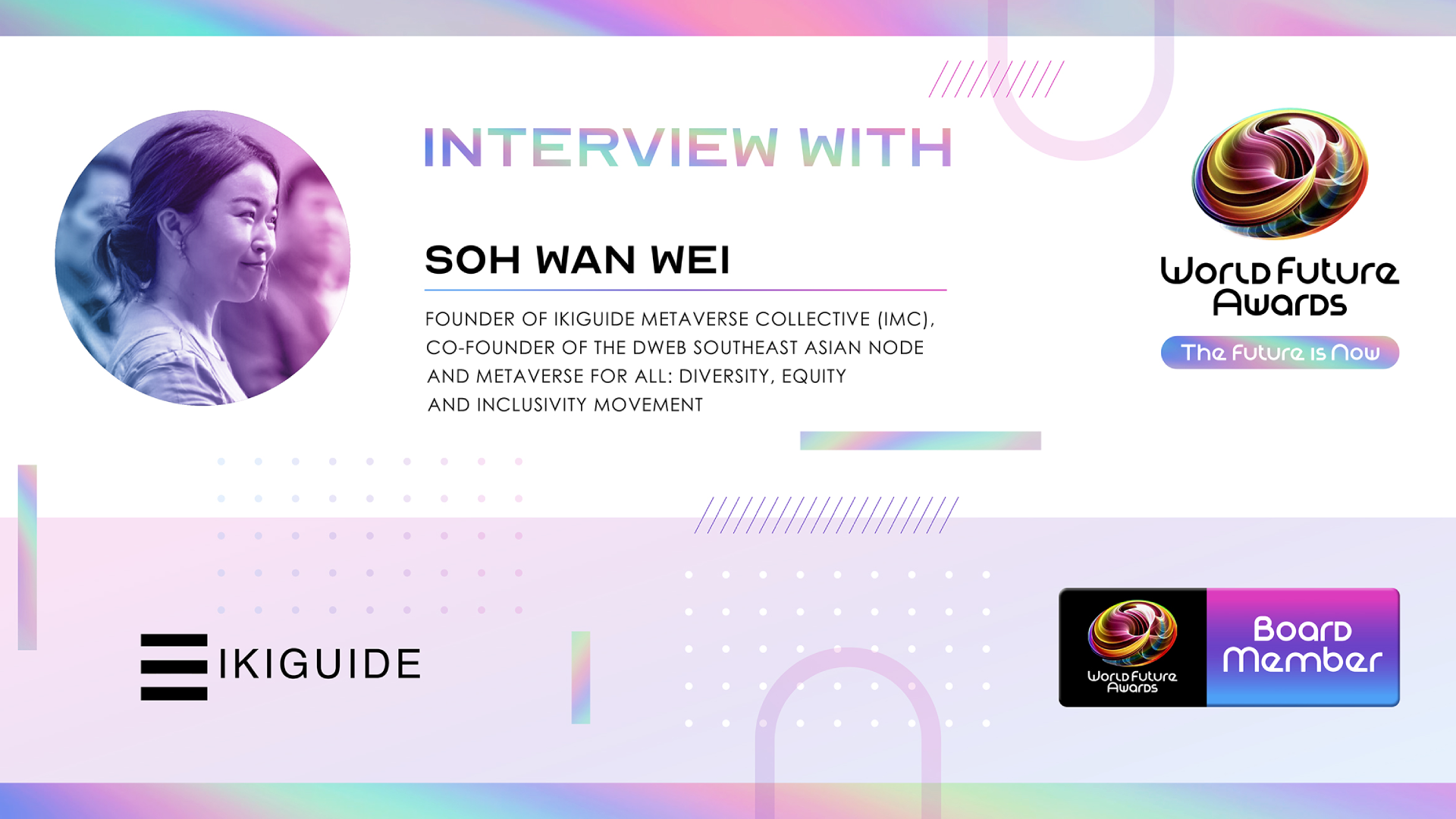Blockchain, Metaverse, and Web 3.0 are already an important part of the current reality, and they will obviously become even more significant areas of the future reality.
Soh Wan Wei, founder of IKIGUIDE, a multi-talented thought leader and technology futurist, has played a significant role in popularising and promoting these innovative digital technologies. Her extensive list of achievements has recently been expanded with the addition of World Future Awards board member status, which provides for the selection and evaluation of the world’s best innovative products and services.
We spoke to Wan Wei about her journey in the industry and her vision of the role of technology in shaping the landscape of the future.
World Future Awards: Please tell us about yourself and your activities before you joined the blockchain space.
Soh Wan Wei: I have always been involved in digital marketing, social media and community management. It’s only recently that I’ve been involved in running my own business instead of working as a contributor.
I also identify as a global citizen, having stayed 4 years in Europe and a year in Japan.
WFA: Can you share with our readers the main areas of your activities?
SWW: That’s a great question *laughs*. Indeed, I’ve been documented doing a lot of Web3 activities on social media!
We have also been working in stealth mode for a particular project since last July, which excites me as it shows the potential of solving a lot of problems and pain points faced by professionals in the Web 3.0 space.
This project is titled W3bverse. It focuses on the mission of helping professionals or get started or get better at their Web3 careers. Please stay tuned as we will do more announcements once it moves into beta mode!
WFA: You do a lot of speaking and interacting with large audiences. How would you describe modern society’s attitude towards Blockchain, Metaverse, and Web 3.0? What attracts people to these new technologies, and what makes them wary?
SWW: Great question! From what I’ve seen, Blockchain, Metaverse, and Web 3.0 technologies are becoming more and more interesting to people today.
I guess most people come to know about the Blockchain as an underlying technology via use cases like price of coins. From there, people become more aware of how these emerging technologies could change industries, change traditional business models, and improve many parts of our daily lives.
One of the best things about these technologies is that they can solve problems that have plagued traditional systems in a way that is decentralized, secure, and open. For example, Blockchain technology makes it possible to move assets quickly and safely without the need for middlemen, and the Metaverse could make online experiences more immersive and interactive.
Despite the excitement and possible benefits of these technologies, however, some people are still wary of them because they are worried about data privacy and security, the possibility of misuse and abuse, and the ethical implications of using them widely.
Overall, I think that as more people learn about these technologies and the ways they could be used, Blockchain, Metaverse, and Web 3.0 technologies will become more accepted and used in modern society.
WFA: What aspects of community life are primarily affected by the technologies you work with? How do you see that happening?
SWW: Emerging technology, in general, could have significant impact on different parts of community life.
The economy is one area where these technologies can make a difference. For example, Blockchain technology could change the way traditional financial systems work by making peer-to-peer transactions safe and easy. This would make banks and other middlemen less important. This could make the economy less centralized and more fair, especially for people who may not have been able to use traditional financial systems before.
Emerging technologies can also change how people interact with each other. For example, the Metaverse gives people a new way to connect and talk to each other online. The immersive nature of the Metaverse has the potential to create new communities and strengthen existing ones. Better experiences are born as better stories are told.
Lastly, these technologies can also affect how things are run and how decisions are made. Web 3.0 technologies, for example, can make decision-making more open and less centralized by making voting and governance more secure and effective.
Overall, how these technologies are adopted and used will determine how they affect community life. But I think they have a lot of potential to make communities that are more fair, connected, and open.
WFA: Striving for a better future is inconceivable without a thorough understanding of the present. What would you change first and foremost in today’s world to bring about a better tomorrow?
SWW: First, we need to recognize the problems we have today. Some of these problems are climate change, inequality in the economy, political polarization, and social injustice.
To deal with these problems, we need to work toward making a society that is more fair, sustainable, and just. This can be done in a number of ways, such as by investing in renewable energy, promoting fair and equal access to resources and opportunities, fighting systemic biases and discrimination, and encouraging open and inclusive dialogue across communities.
Putting education and awareness first is an important step toward a better future. We need to teach ourselves and the next generation about the problems we face, how they affect different groups, and what we can do to fix them. We can work toward a more sustainable, fair, and just future for everyone if we encourage a culture of learning, empathy, and working together.
Even though the world is facing a lot of problems right now, we can build a better future for ourselves and future generations if we work together and put education and awareness first.
WFA: What are the key positive changes that NFT, Blockchain, Web 3.0, and Metaverse can bring to the world?
SWW:
- Decentralization and democratization: Blockchain technology has the potential to decentralize and democratize many parts of our society, such as finance, government, and data ownership. This can help people and communities have more fairness, openness, and participation.
- Creators and artists are given more power because NFTs give them a new way to make money from their work and have more control over their intellectual property. This could give creators and artists more freedom in their work, more financial security, and more fair pay.
- Immersive and interactive experiences: The Metaverse gives us new ways to have immersive and interactive experiences that can improve our everyday lives, from entertainment to learning and socializing. This can give people in different communities new ways to get involved, connect, and learn.
Overall, these technologies have the potential to make the world a lot better, from making it more fair and open to giving people new ways to be creative and get involved. But their effects will depend on how they are put into place and used. It’s also important to think about the risks and challenges that may come with these technologies.
WFA: What is the most exciting and inspiring thing about your work for you?
SWW: I can bounce ideas off the community of people who share my passion for using technology to make the world a better place. Being a part of a group of people who share my goals and values is inspiring.
WFA: As a member of the World Future Awards board, what criteria do you prioritize for the selection and evaluation of nominees and winners?
SWW: I would definitely prioritise impact.
I would ask these two questions:
1) What is the nominee’s or winner’s work likely to do or has already done?
2) Does their work have a chance of making a big difference for the better in their field or in society as a whole?
WFA: How do you see Blockchain, Web 3.0, and Metaverse technologies developing in the coming years?
SWW: In the next few years, the Blockchain space will likely continue to grow and change, with new applications and use cases coming out as the technology matures.
Web 3.0 technologies like decentralized storage, identity, and communication solutions, as well as the use of decentralized applications (dApps) and smart contracts, are likely to keep growing.
We can also expect the Metaverse to continue to grow, with new technologies and platforms creating new ways for people from different communities to connect, learn, and do things together. Feel free to read my interview on Bondee.
Overall, it’s hard to say how these technologies will change in the coming years, but it’s clear that they have the potential to make a big difference in our society and our daily lives for the better.
It will be interesting to see how these technologies change over time, how they are used, and how they can help make the future better for everyone.



